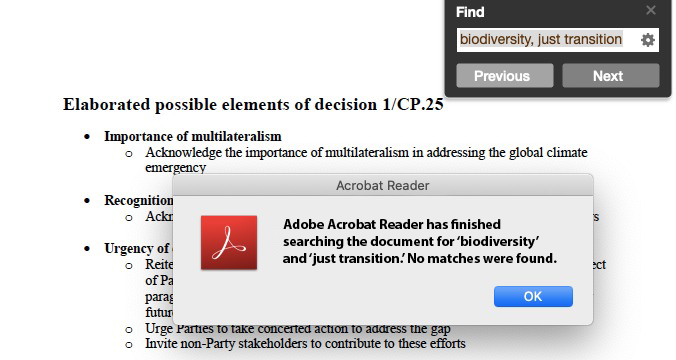Dear Ministers, We Need to Talk!
Dear Ministers, we need to talk! And frankly, before we do so, you need to learn to listen.
500,000 people were out on the streets of Madrid, marching for an outcome from this COP25 that adequately responds to the climate emergency. When you arrive here, you do so after a year that witnessed the rise of a historic climate movement as well as further aggravation of climate impacts. ECO is quite stunned by how ministers from large emitters praised the young people fighting for their future in an almost effortlessly self-serving manner while failing to taking substantive action.
ECO will not let you leave Madrid without listening to the demands of the young people, front line communities, and Indigenous Peoples. Coming to Madrid, you must respond to the people and the science. So far you have failed; take Madrid as an opportunity to change that. For ECO, this entails urgently enhancing NDCs, prioritizing environmental integrity, and delivering new and additional finance for loss and damage.
Here are some starting points for our conversation:
ECO is quite excited that Denmark’s ambitious climate target of reducing emissions by 70% by 2030 was just made binding this week. There is no reason why, as ministers from high emitting countries, you cannot give some clear signals of commiting to something similar here in Madrid.
... Read more ...

